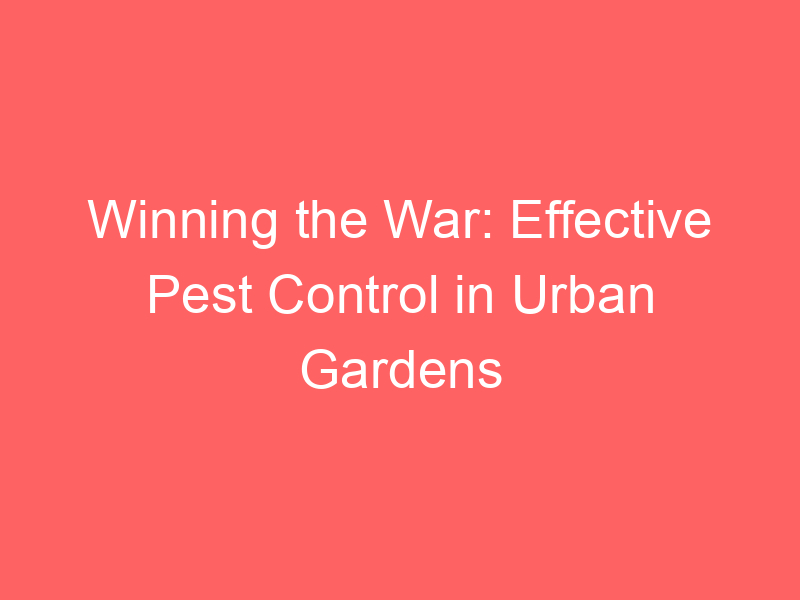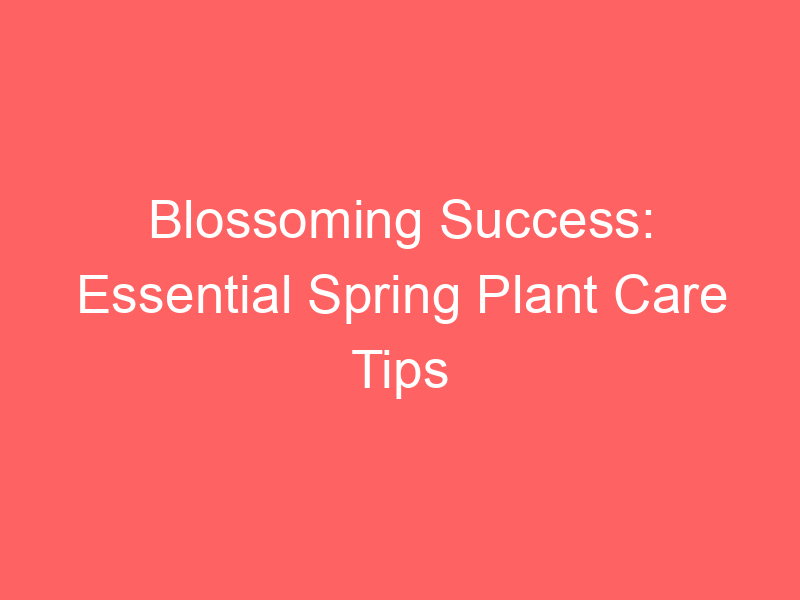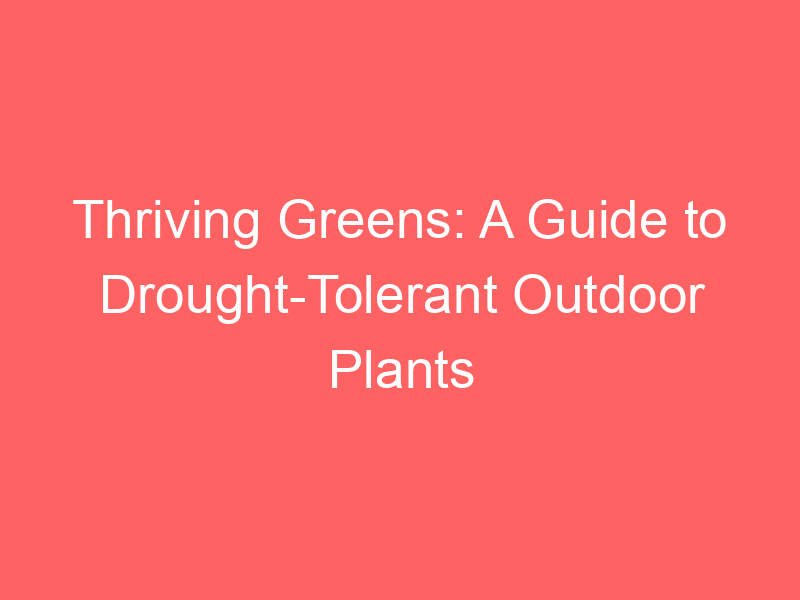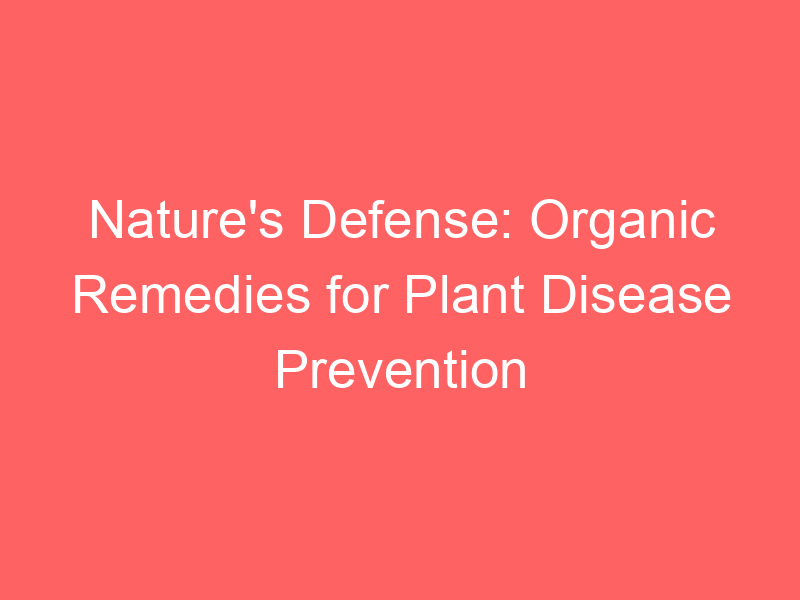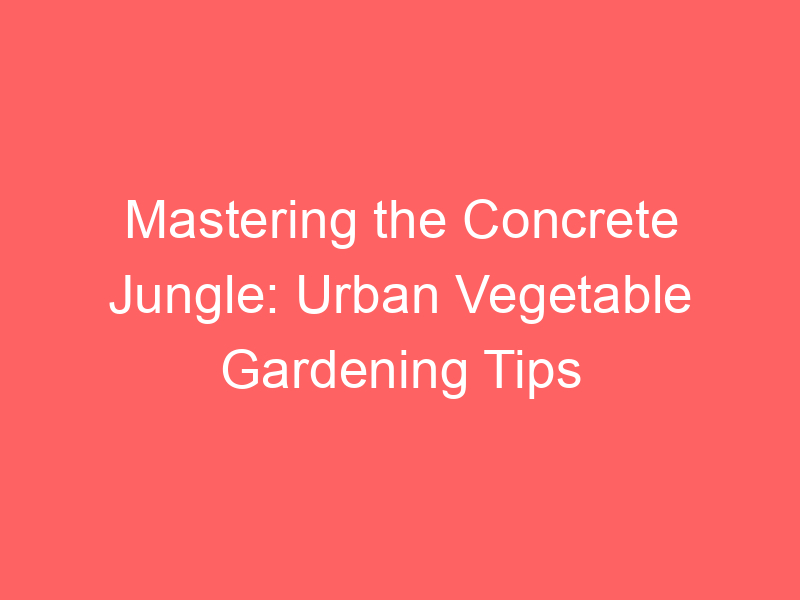Introduction to Urban Garden Pest Control
Urban gardening has become increasingly popular as city dwellers seek to grow their own food and beautify their surroundings. However, one of the challenges that urban gardeners face is dealing with pests. In this section, we will delve into the importance of pest control in urban gardens and provide an overview of common pests that plague these green spaces.
-
- Understanding the Importance of Pest Control in Urban Gardens
Pest control is crucial in maintaining the health and productivity of an urban garden. Pests can cause significant damage to plants, reducing their growth and yield. They can also spread diseases that can be harmful to both plants and humans. Effective pest control ensures that your plants thrive and that your garden remains a safe and healthy environment.
-
- Overview of Common Urban Garden Pests
There are several pests that are common in urban gardens. These include aphids, which are small insects that feed on plant sap, causing leaves to curl and yellow. Slugs and snails, which eat leaves and stems, can also be a problem. Other common pests include caterpillars, beetles, and rodents. Understanding these pests and their behaviors is the first step towards effective pest control.
In the following sections, we will explore methods for identifying these pests, organic and professional solutions for pest control, and preventative measures you can take to keep your urban garden pest-free. We will also share case studies of successful urban garden pest control efforts. So, let’s embrace the challenge of urban garden pest control together!
Identifying Urban Garden Pests
One of the challenges of maintaining a healthy urban garden is dealing with pests. These unwelcome guests can wreak havoc on your plants if not identified and dealt with promptly. Let’s take a closer look at some common insects you might encounter in your urban garden.
Common Insects in Urban Gardens
Urban gardens, despite their concrete surroundings, are not immune to insect infestations. Two of the most common pests you might encounter are aphids and beetles. Here’s how to identify them and understand their impact on your plants.
-
- Identifying Aphids and Their Impact on Plants
Aphids are small, soft-bodied insects that are often green or black. They can be found on the underside of leaves, where they feed on plant sap. This can cause leaves to curl, yellow, or drop prematurely. Aphids also produce a sticky substance called honeydew, which can lead to the growth of sooty mold.
-
- Recognizing the Signs of a Beetle Infestation
Beetles come in a variety of shapes and sizes, but most garden beetles are small and hard-shelled. They can cause damage by chewing on leaves, stems, and roots. Signs of a beetle infestation include holes in leaves, chewed plant parts, and in severe cases, plant death.
Identifying these pests early is key to protecting your urban garden. In the next section, we’ll explore some organic methods for controlling these pests and keeping your plants healthy.
Vertebrates and Other Pests
While insects can be a nuisance in your urban garden, vertebrates such as rodents and birds can also pose a significant challenge. Let’s explore some strategies to deal with these pests.
-
Dealing with Rodents in City Gardens
Rodents, including rats and mice, are common pests in city gardens. They can damage plants, eat fruits and vegetables, and even spread diseases. However, there are several ways to control these pests.
Firstly, maintain cleanliness in your garden. Rodents are attracted to food and waste, so make sure to clean up any fallen fruits or vegetables regularly. Secondly, use rodent-resistant plants. Some plants, like daffodils and marigolds, are known to deter rodents. Lastly, consider using traps. There are many humane traps available that can catch rodents without harming them. Remember, it’s essential to check local regulations before using any traps or deterrents.
-
Controlling Bird Damage in Urban Gardens
Birds can also be a problem in urban gardens. They can eat seeds, fruits, and vegetables, and sometimes damage plants. However, there are several strategies to control bird damage.
One effective method is using bird netting. This can be draped over your plants to protect them from birds. Another method is to use bird feeders. By providing a separate food source, you can distract birds from your plants. You can also use scare tactics, like scarecrows or shiny objects, to deter birds. Remember, it’s important to respect local wildlife and use humane methods to control pests.
Organic Pest Control in Gardens
For those who love gardening, dealing with pests can be a real challenge. However, there are organic methods that can help control these unwanted visitors. Let’s explore some natural pest control strategies for gardens.
Natural Pest Control for Gardens
Instead of resorting to harmful chemicals, there are several natural methods that can help keep your garden pest-free. Here are two effective strategies:
-
- Using beneficial insects for pest management in gardens
Beneficial insects are nature’s way of controlling pests. These insects, such as ladybugs, lacewings, and parasitic wasps, feed on common garden pests. By introducing these beneficial insects into your garden, you can maintain a natural balance and reduce the number of harmful pests. For example, ladybugs are known to consume aphids, a common garden pest, helping to keep their population under control.
-
- Employing biological controls for garden pest control
Biological control involves using the pests’ natural enemies to control their population. This can include predators, parasites, or pathogens. For instance, introducing nematodes, microscopic worms, into your garden can help control pests like slugs and beetles. These nematodes infect the pests, reducing their population over time.
By using these natural pest control methods, you can maintain a healthy, thriving garden without resorting to harmful chemicals. Remember, a balanced ecosystem is key to a successful garden.
Homemade Pest Control Solutions
When it comes to maintaining the health and beauty of your outdoor plants, pests can be a significant challenge. However, you don’t always need to rely on expensive, chemical-laden products. There are several homemade solutions you can use to control pests in your urban garden. Let’s explore some of these DIY methods.
-
- Creating DIY Sprays for Pest Control for Plants
One of the most effective and cost-efficient ways to control pests in your garden is by creating your DIY sprays. These sprays can be made using common household ingredients and are safe for your plants.
For instance, a simple mixture of water and mild dish soap can be used to deter a variety of pests. To make this spray, combine one cup of water with a teaspoon of dish soap. Spray this mixture on your plants once a week, and you’ll notice a significant reduction in pests.
Another effective DIY spray involves the use of garlic. Garlic is known for its strong smell, which can deter pests. To make a garlic spray, blend two whole bulbs with a small amount of water, then add a half cup of water to the mix. This spray can be used once every two weeks for best results.
-
- Using Household Items for Pest Control in Urban Gardens
Besides DIY sprays, there are several household items you can use for pest control in your urban garden. These items are not only effective but also safe for your plants and the environment.
For instance, coffee grounds can be used to deter pests like slugs and snails. Simply sprinkle the grounds around your plants, and the caffeine will keep these pests at bay.
Another household item you can use is vinegar. Vinegar’s acidity can kill small pests and deter larger ones. To use vinegar for pest control, mix one part vinegar with one part water and spray it on the affected areas.
While these homemade solutions can be effective, they should be used as part of a comprehensive pest control strategy. This strategy should also include regular monitoring of your plants and maintaining proper garden hygiene.
The homemade pest control solutions can be a cost-effective and eco-friendly way to maintain the health and beauty of your outdoor plants. So, don’t let pests ruin your urban garden. Try these DIY methods and keep your garden pest-free.
Professional Pest Control Solutions for Urban Gardens
While organic methods and preventive measures can be effective, sometimes the pest problem in your urban garden may become too overwhelming to handle alone. In such cases, professional pest control solutions may be your best bet. Let’s explore when to consider these services and how to choose the right company for your garden.
-
- When to consider professional pest control services
There are several situations when you might need to consider professional pest control services. If you’ve tried organic methods and they haven’t worked, or if the pest problem is too large or complex for you to handle, it’s time to call in the professionals. In addition, if the pests are posing a risk to your health or causing significant damage to your plants, professional help is warranted. According to a Wikipedia article on pest control, professionals have access to a wider range of treatments and can often deal with pest problems more effectively and quickly than you can on your own.
-
- Choosing the right pest control company for your urban garden
Choosing the right pest control company is crucial to ensure your garden gets the best care. Look for a company that has experience in dealing with urban gardens and understands the unique challenges they present. Check their reviews and ask for references to ensure they have a good track record. It’s also important to choose a company that uses environmentally friendly methods, to protect your garden and the surrounding environment. Lastly, make sure they offer a guarantee for their services, so you can be confident in their ability to solve your pest problem.
The organic and preventive methods are often the first line of defense against pests in urban gardens, professional pest control services can be a valuable tool when these methods are not enough. By knowing when to consider these services and how to choose the right company, you can ensure your garden remains healthy and thriving.
Preventing Urban Gardening Pest Problems
Urban gardening can be a rewarding experience, but it also comes with its share of challenges. One of the most significant challenges is dealing with pests. However, with the right strategies, you can prevent pest problems and maintain a healthy garden.
Maintaining a Healthy Garden
Maintaining a healthy garden is the first step in preventing pest problems. A well-maintained garden is less likely to attract pests and more likely to resist them.
-
- Importance of regular garden maintenance for pest control
Regular garden maintenance is crucial for pest control. This includes activities like watering, pruning, weeding, and fertilizing. Regular watering keeps plants healthy and less susceptible to pests. Pruning removes dead or diseased parts of plants that can attract pests. Weeding eliminates competition for resources and reduces hiding places for pests. Fertilizing ensures plants have the nutrients they need to resist pests.
-
- Using plant diversity to deter pests
Plant diversity is another effective strategy for deterring pests. Different plants attract different pests, so a diverse garden is less likely to have a pest infestation. Additionally, some plants naturally repel certain pests. For example, marigolds are known to deter nematodes and aphids. By including a variety of plants in your garden, you can create a natural pest control system.
Maintaining a healthy garden is key to preventing pest problems. Regular garden maintenance and plant diversity are two strategies that can help. Remember, prevention is always better than cure when it comes to pest control in urban gardening.
Creating a Pest-Resistant Garden
Creating a pest-resistant garden is a proactive approach to urban gardening. By choosing the right plants and designing your garden layout strategically, you can significantly reduce pest problems. Let’s explore these two key steps in detail.
- Choosing Pest-Resistant Plants for Urban Gardens
Not all plants are created equal when it comes to pest resistance. Some plants naturally repel certain pests, while others are more susceptible to infestation. For instance, marigolds are known to deter nematodes and other garden pests. Similarly, plants like basil and rosemary can repel mosquitoes and other insects.
When choosing plants for your urban garden, consider their pest resistance. Research the common pests in your area and select plants that are less attractive to them. This doesn’t mean your garden will be completely pest-free, but it can significantly reduce the number of pests.
- Designing a Garden Layout to Minimize Pest Issues
How you design your garden can also impact its susceptibility to pests. Here are a few tips:
- Spacing: Ensure your plants have enough space for air circulation. Crowded plants can create a humid environment that pests love.
- Companion Planting: Some plants can help each other out when planted together. For example, planting garlic near roses can help keep aphids away.
- Rotation: Rotating your crops each season can prevent pests that target specific plants from establishing.
By implementing these strategies, you can create a garden that’s not just beautiful, but also resilient against pests.
By choosing pest-resistant plants and designing your garden layout strategically, you can create a strong first line of defense against pests. Happy gardening!
Case Studies: Winning the War Against Urban Garden Pests
Let’s delve into two real-life examples of successful pest control in urban gardens. These case studies will illustrate how both organic and professional methods can effectively combat pesky invaders.
-
Case Study 1: Successful Organic Pest Control in a City Garden
Meet Jane, an urban gardener from New York City. Jane’s garden was infested with aphids, causing significant damage to her plants. Unwilling to use chemical pesticides, Jane opted for an organic approach.
She introduced ladybugs, a natural predator of aphids, into her garden. Jane also used a homemade spray made of water, mild dish soap, and a dash of cayenne pepper. This organic solution deterred the aphids without harming her plants or the environment.
Within a few weeks, Jane noticed a significant decrease in the aphid population. Her plants began to thrive again, proving that organic pest control can be a successful strategy in an urban setting.
-
Case Study 2: Effective Professional Pest Management in an Urban Garden
Now, let’s turn to John, a gardener in Los Angeles. John’s garden was overrun by slugs and snails, which were destroying his lettuce and other leafy greens. Unlike Jane, John decided to hire a professional pest control service.
The professionals identified the pests and implemented a targeted treatment plan. They used specialized baits and traps to capture the slugs and snails, effectively removing them from the garden.
John’s garden quickly recovered and his lettuce crop flourished. This case study demonstrates that professional pest control can be a highly effective solution for urban garden pests.
Both Jane and John were able to reclaim their gardens from pests, using different but equally effective methods. Their experiences show that with the right approach, you too can win the war against urban garden pests.
Conclusion: Embracing the Challenge of Urban Garden Pest Control
As we wrap up our discussion on urban garden pest control, it’s important to remember that maintaining a healthy and vibrant garden in the city is not without its challenges. However, with the right knowledge and strategies, these challenges can be effectively managed and even turned into opportunities for growth and learning.
-
- Key takeaways for controlling pests in city gardens
Firstly, identification is key. Knowing what pests you’re dealing with allows you to choose the most effective control methods. Organic pest control methods, such as introducing beneficial insects or using homemade sprays, can be effective and environmentally friendly. However, in some cases, professional pest control solutions may be necessary. Prevention is always better than cure, so keep your garden clean and healthy to minimize pest problems. Finally, learn from others. Case studies can provide valuable insights into successful pest control strategies.
-
- Final thoughts on the importance of pest control in urban gardens
Urban gardening is not just about beautifying our cities or growing our own food. It’s also about creating sustainable ecosystems and promoting biodiversity. Pests, while often seen as a nuisance, are part of this ecosystem. Therefore, managing them effectively is crucial not just for the health of our gardens, but for the health of our cities and our planet. Remember, every challenge we overcome makes us better gardeners and more responsible citizens.
Embrace the challenge of urban garden pest control. It’s a journey of discovery, learning, and growth. And remember, every garden is unique, so what works for one may not work for another. Keep experimenting, keep learning, and most importantly, keep gardening!

